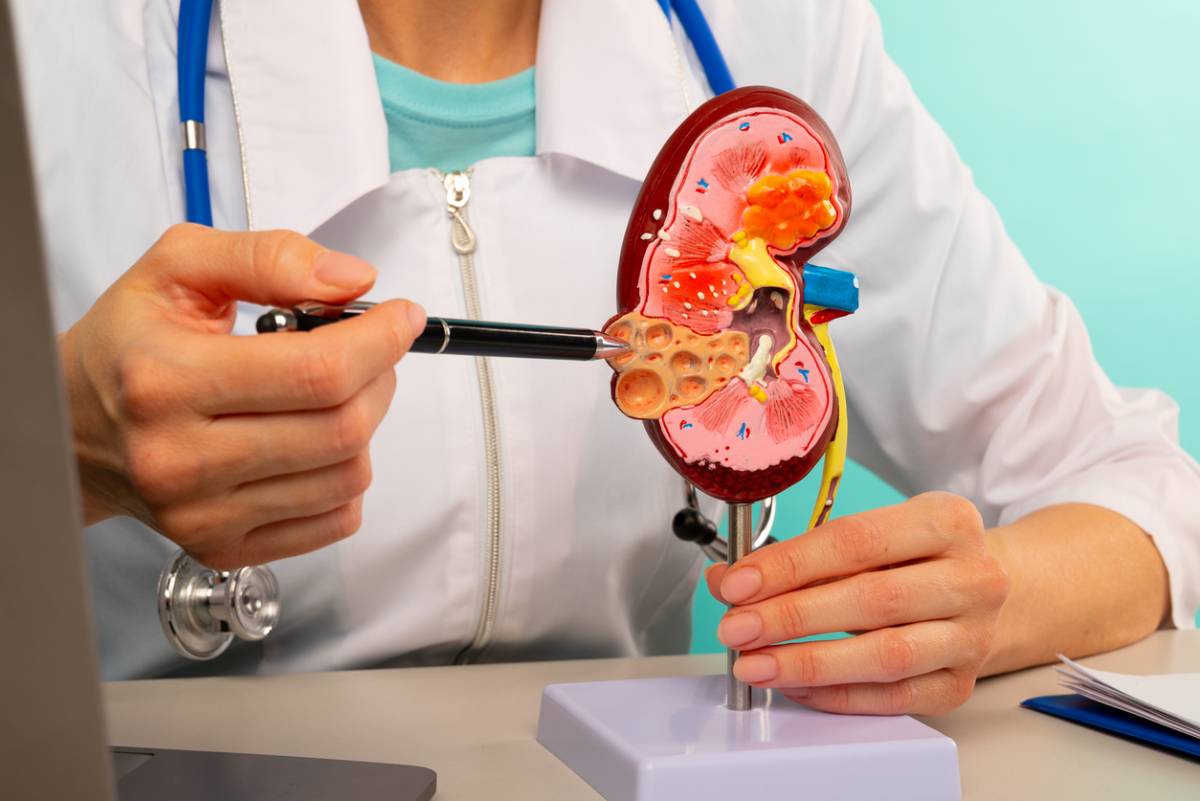Kidney stones, often described as one of the most excruciating ailments one can suffer, can transform a seemingly ordinary day into a harrowing nightmare marked by intense pain and discomfort. But what do kidney stones feel like? These small, hard mineral deposits form within the kidneys and can lead to a variety of distressing symptoms, including sharp, stabbing pain that radiates from the back to the abdomen, as well as nausea and difficulty finding a comfortable position. Understanding what kidney stones feel like is crucial for recognizing their onset and seeking timely medical intervention with a licensed nephrologist. As always, being proactive and seeking preventative medicine when necessary is going to be your greatest ally in the fight against painful kidney stones.
Causes of Kidney Stones
Scientists have discovered several correlations between kidney stones and their causes. No matter the cause of your kidney stone, if symptoms persist or become intense, you should always seek medical care to ensure your health and safety. Common causes of kidney stones include:
- Poor water intake
- Too much or too little exercise
- Obesity
- Weight loss surgery
- A diet high in sodium or sugar
- History of infections
- Family history
- Too much fructose
Types of Kidney Stones
Kidney stones aren’t all the same. In fact, there are four individual types of stones, each with its own characteristics.
That said, each type will share a few commonalities, such as pain. Unfortunately, no matter what type of kidney stone you have, it is likely you will experience pain to some degree.
Calcium Oxalate
Calcium oxalate is the most common type of kidney stone and can be due to inadequate calcium and fluid intake. Deficiency in calcium and fluid, as well as other conditions, have been determined to cause calcium and oxalate in your urine. When these compounds bind together, they create crystals that can form a solid mass.
Uric Acid
Uric acid is a waste product produced by your body. Uric acid stones can form when uric acid crystallizes in your urine. Often found in cases with high levels of uric acid in the blood, low urine pH, diuretic use, and certain medical conditions.
Struvite
Struvite stones can form rapidly, to the degree that they fill the renal collecting system, potentially leading to staghorn calculus formation. Struvites are characterized as infection stones or triple phosphate stones and are composed primarily of magnesium and ammonium phosphate. Evidence suggests a strong association with urinary tract infection.
Cystine
Cystine stones are formed from the amino acid cystine. This type of kidney stone is uncommon but is a serious condition that could have devastating consequences if left untreated. Cystine stones are the result of a genetic condition called cystinuria, which is defined as the improper reabsorption of cystine into the kidneys. This problem leads to high levels of cysteine in the urine, and when a threshold is reached, it can crystallize to form stones.
Common Symptoms
Common symptoms of kidney stones include:
- The primary symptom is severe pain that starts and stops abruptly, typically in your belly or the side of your back. Pain may also radiate to the groin area.
- Abnormal urine color
- Blood in your urine
- Chills
- Fever
- Nausea
- Vomiting
Prevention Strategies and Treatment
Small stones with few symptoms do not require invasive treatments and can typically be passed by drinking lots of water and with over-the-counter pain relievers. For larger stones that cause symptoms and that cannot be passed on their own, sound waves may be used to break them up. Other more invasive treatments include surgery or a scope to remove the stones. As well as parathyroid gland surgery.
Protect Yourself From The Pain of Kidney Stones
Kidney stones can be an excruciating experience that’s often described as one of the most painful conditions a person can endure. The sensation ranges from a dull ache to sharp, stabbing pains that can leave you breathless. While each person’s experience may vary, the hallmark symptoms of severe back or side pain, nausea, and difficulty urinating are telltale signs that shouldn’t be ignored. Early detection and proper medical care are crucial in managing kidney stones effectively. If you suspect you’re dealing with this condition, don’t hesitate to seek professional help; your kidneys and your comfort will thank you for it.
Get Kidney Treatment Today!
Don’t suffer from the agony of kidney stones any longer! Contact our highly-rated nephrologist today to schedule a comprehensive assessment.

